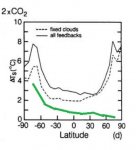- Joined
- Jul 6, 2017
- Messages
- 122,485
- Reaction score
- 19,843
- Gender
- Undisclosed
- Political Leaning
- Undisclosed
And with me it was a sandwich .... are you really that pathetic that this is really all You've got ? I'm guessing so :roll:
Why would I care if you eat a sandwich? Lol



